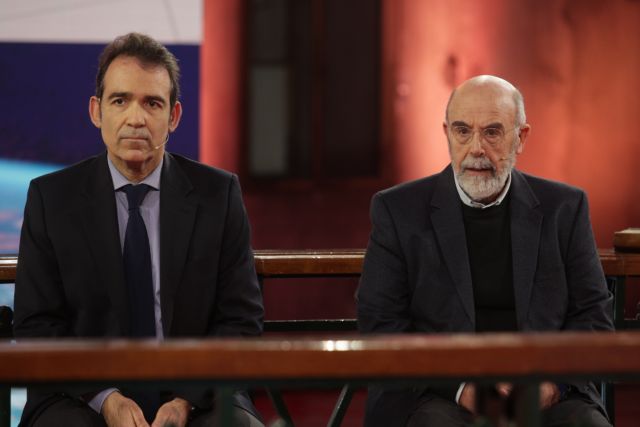
Mr Antonis Liakos, historian and professor of contemporary history and history of historiography at the University of Athens, talked with Mr George Pagoulatos, professor of European Politics and Economy at the Athens University of Economics and Business (AUEB) and Director General of the Hellenic Foundation for European and Foreign Policy (ELIAMEP), about the root causes of the Russian invasion in Ukraine and the impact of the crisis in Europe, in the session “Is Europe Really Changing?” of the OT Forum.
“Obviously, we condemn the Russian invasion, but we have to understand the context in which this invasion took place,” stressed Mr Liakos. Moreover, he clarified: “The Ukrainian issue existed in 2014-2015, it existed before 2004-2008 and, even earlier, it was preceded by the root cause of today’s events which is the collapse of the former USSR, in 1991.”
“When the Yugoslavia’s wars took place,” said Mr Liakos “I had written a text, in which I stressed that what we see in Yugoslavia, is very likely to be seen to a greater extent in the field of the USSR. We are talking today about the type of Vladimir’s Putin government and what criteria he decides on, but the same applies to the Eastern Europe as a whole. This crisis has to do, not only with the eastward expansion of NATO, but also with NATO’s refusal to accept a reorganisation that will also include Russia. On the one hand, we really think of notions like dominance and zones of influence but, on the other, we have to observe and understand how public opinion is shaped in these zones and what it wants. This is how we ended up with today’s tragedy of war,” Mr. Liakos noted.
“We are talking with history”
“This war has complex causes,” said Mr Pagoulatos, adding that “the West did not succeed neither with the defeated Russia, in 1991, nor in the First World War with the defeated Germany,” and noted “that the big stakes today are that people are being killed because an authoritarian leader invaded a country in order to occupy it and seize parts of it. In this stakes, we are ‘talking’ with history,” he stressed, ” it is not a literary confrontation, this war brings us back, not to a Cold War, but to a ‘hot’ war. Putin wants to neutralize an extroverted Ukraine and, like any irredentist leader, he wants to make Ukraine part of the zones of influence for Russia. It doesn’t matter if he conquers some parts of the country. This is why it is really important for Europe to regain the unity it had lost, in order to respond in a vertical way.”
For his part, Mr Liakos pointed out, as far as Russia is concerned, that “the way in which the the transition from one regime to the other after the collapse of USSR is no different from that which prevailed in the West. It is a similar regime, where democracy does not exist everywhere. There are a lot of regimes around the world, that are really similar due to globalisation and in some of them there is no democracy. It is a great trap to set on the one hand democracies and on the other dictatorships, because they exist on both sides and because there is no clear line between them.”
He noted, however, that “obviously, we have an authoritarian regime in Russia, but we need to see which are the consequences of a new Cold War. There are two elements: geopolitics and history. This crisis comes after a series of crises, economic, refugee, pandemic, war, environmental crisis, and the last one is not at the bottom of the horizon. The pandemic was the foretaste of this great crisis. A war crisis has been added to all this. We need to see what the consequences are for Europe, which is losing its autonomy, in the context of geopolitical warfare. The centre of gravity in Europe is the fact that it is shifting its interests eastwards, with very important consequences.
“It is obvious,” stressed Mr Pagoulatos, “that Europe is the military weak partner of the West. But this, as he explained, “is a consequence of the fact that Europe created its vision through rules of the rule of law, values and rights, not as a military power and therefore, at this juncture, joins the US. Maybe that’s the weakness of Europe. We can also see a revival of NATO. I am not happy for Europe, ” stressed Mr Pagoulatos, “as I would like it to deal with other issues, based on a system of values, where it is a global protagonist.”
“Russia is lost for Europe”
“Russia is lost for Europe and mainly the West is lost for Russia, as a consequence of Putin’s choice to invade Ukraine,” noted Mr Pagoulatos and added: “Russia has made a strategic choice, it is de-esternizing and is linked to the Asian model, which is predominantly an authoritarian model and, indeed, by choice, as is the case with China. And Putin is in fond of that choice. So, we have two poles: one is that of liberal democratic countries and the other one is that of authoritarian space. ”
“We had the re-conquest of the Roman Empire with Justinian,” stressed Mr Liakos, “or of the Spanish kings and so on, and now we have the same for the re-creation of Soviet space. Before the Ukrainian crisis, let me remind you, there was President Biden’s surprise move with Australia, which had triggered President Macron’s reaction. At that time, many had seen a historic change in relation with NATO. Today, the question is how this crisis is going to end, if it is magnified and includes a new Cold War, we are going to experience tremendous changes in terms of the global economy, the disintegration of globalisation, which is very dangerous. It is really difficult to understand the magnitude of the changes that will occur. ”
Mr Panagoulatos talked also about the economic consequences of the Ukrainian crisis, reminding that it all started in 2008, then we had to come up against the pandemic crisis and now the invasion of Russia in Ukraine. “There is a tendency towards de-globalization. There is already a downward trend in trade as a percentage of GDP, as well as problems in the supply chain. We see a tendency to disinvest from China, which also affects Europe. This is a period in which economies are cut off from each other, as we are at the cutting edge of sanctions now, with the crucial issue being that global production chains are changing. For example, Russia cannot find spare parts for its planes. For this reason, Russia will either shift its interesets towards China or it will try to enhance its own production. This trend will lead to price hikes as the globalised production chain breaks. Moreover, high inflation will not be temporary, as we are moving towards a system where China and Russia will have to become economically independent from the West. Europe has built its economy on world trade, and for this reason, it will be affected by the changes.”
“Greece is on the right side”
“It is very important,” noted Mr. Pagoulatos, “that Greece confirms its position in the western camp. Τhis is also important because of Turkey’s revisionism. And it is good for our country to contribute to European solidarity. ”
“Greece is on the right side,” agreed Mr Liakos, “in favor of peace, and, at the same time, our position is that of the wider Europe, as far as the refugee problem is concerned.”
Latest News

French Fund Meridiam Shows Growing Interest in Great Sea Interconnector
According to OT, the fund engaged in recent discussions regarding the Great Sea Interconnector with Greece’s Minister of Environment and Energy and the CEO of Greece’s Independent Power Transmission Operator (IPTO/ADMIE)

Everything to Know about Store Hours this Holiday Season
Stores and supermarkets across the country are operating extended hours, offering ample opportunities for holiday shopping
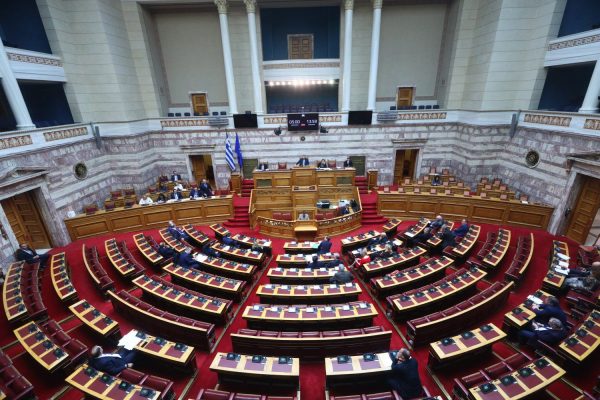
Greece Prepares for State Budget Vote as Debate Reaches Final Stages
Prime Minister Kyriakos Mitsotakis is expected to deliver his remarks late in the evening, shortly before the decisive vote that will conclude the session

DM Dendias: We talk With Turkey But We Always Bring Up Their Unacceptable Positions
Second and last day of closely watched conference, entitled 'Metapolitefsi 1974-2024: 50 Years of Greek Foreign Policy', also included appearances by PM Mitsotakis, Ex-PM Tsipras and PASOK leader Nikos Androulakis, among others

Rhodes Airport Tops Fraport Greece’s Regional Airports in 2024 Performance
According to Fraport's data, more than 35 million passengers (specifically 35.2 million) were handled by Fraport-managed airports during the 11 months.

European Central Bank Cuts Interest Rates by 25 Basis Points
It is the fourth cut of interest rates by Europe’s central bank, a move expected by the markets and financial analysts leading to the rate settling at 3%.

Airbnb: New Measures Add €600 in Extra Costs for Property Owners
Property managers face an immediate administrative fine of 5,000 euros if access to the inspected property is denied or any of the specified requirements are not met.

Economist: Greece Included in the Best Performing Economies in 2024
Meanwhile, Northern European countries disappoint, with sluggish performances from the United Kingdom and Germany.

EasyJet Expands Its Routes from Athens
The airline’s two new routes will be to London Luton and Alicante and they will commence in summer 2025.

Capital Link Forum Highlights Greece’s Economic Resurgence; Honors BoG Gov Stournaras
Capital Link Hellenic Leadership Award recipient, Bank of Greece Gov. Yannis Stournaras, an ex-FinMin, was lauded for his pivotal role during Greece’s economic recovery



![Φυσικό αέριο: Δυναμικό come back του LNG στην Ελλάδα [γραφήματα]](https://www.ot.gr/wp-content/uploads/2023/01/OT_naturalgas-90x90.jpeg)











![Fraport: Πάνω από 35 εκατ. επιβάτες στα αεροδρόμια το 11μηνο – Πτώση στη Μύκονο [πίνακας]](https://www.ot.gr/wp-content/uploads/2022/06/fraport-90x90.jpg)












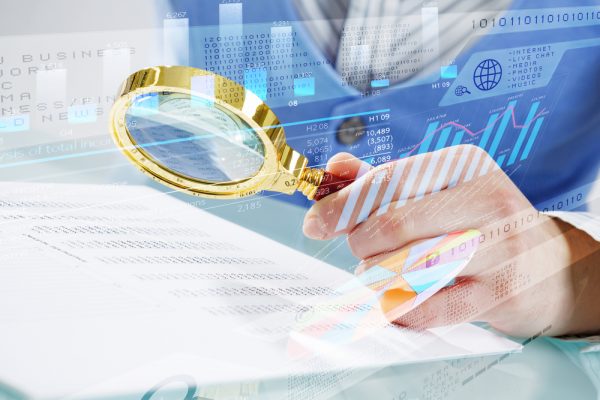
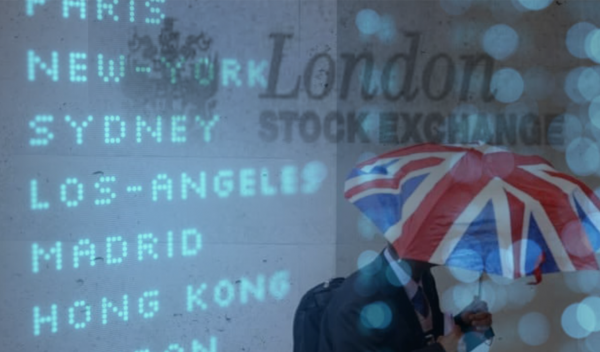
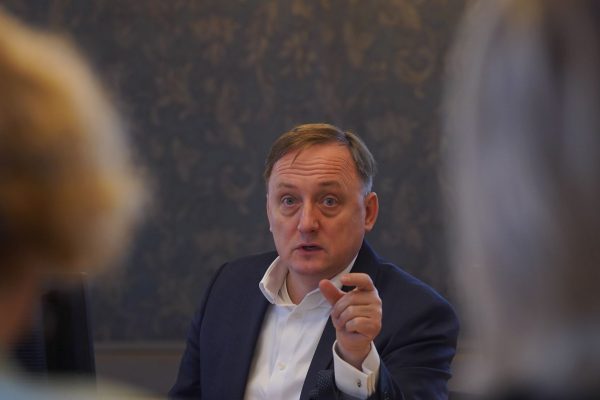

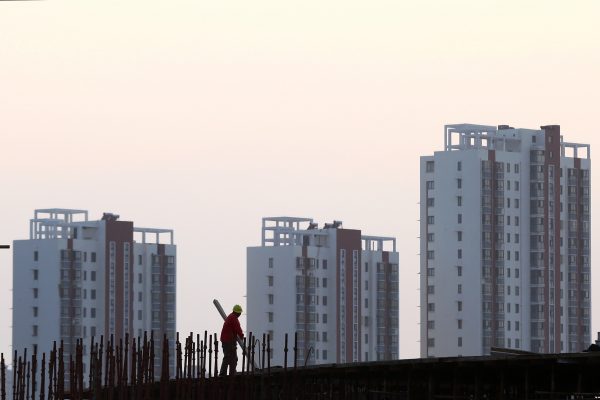
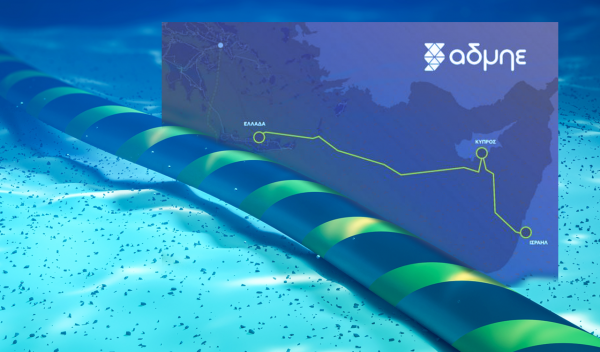








 Αριθμός Πιστοποίησης Μ.Η.Τ.232433
Αριθμός Πιστοποίησης Μ.Η.Τ.232433